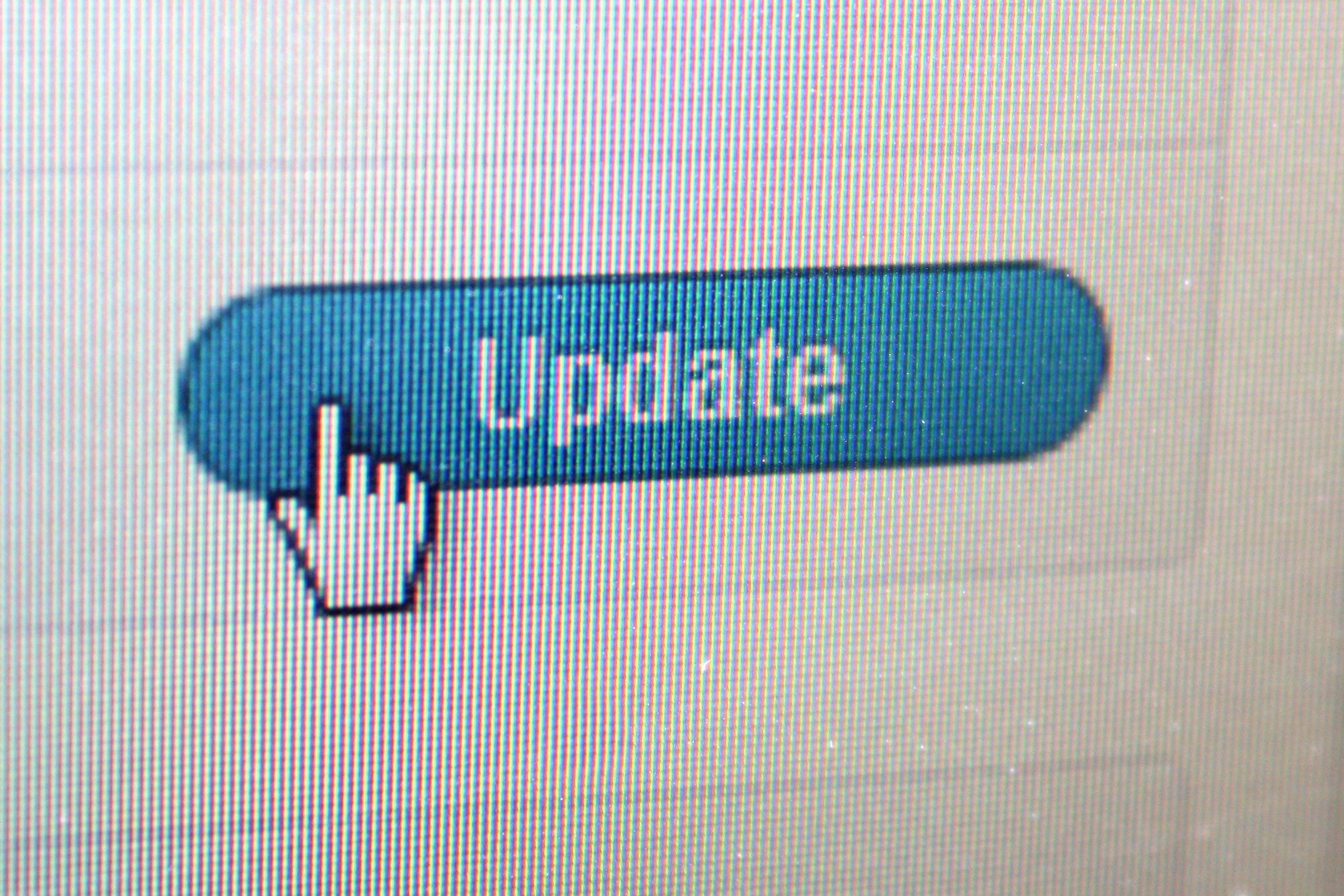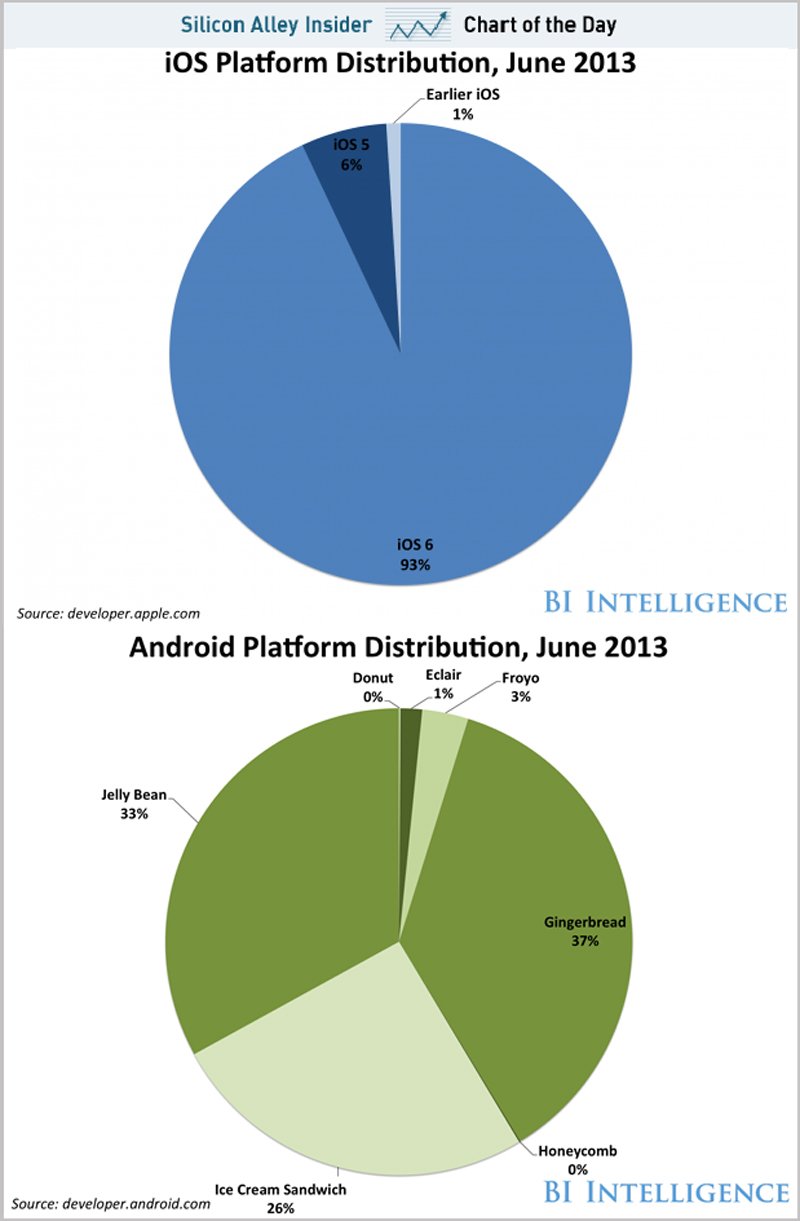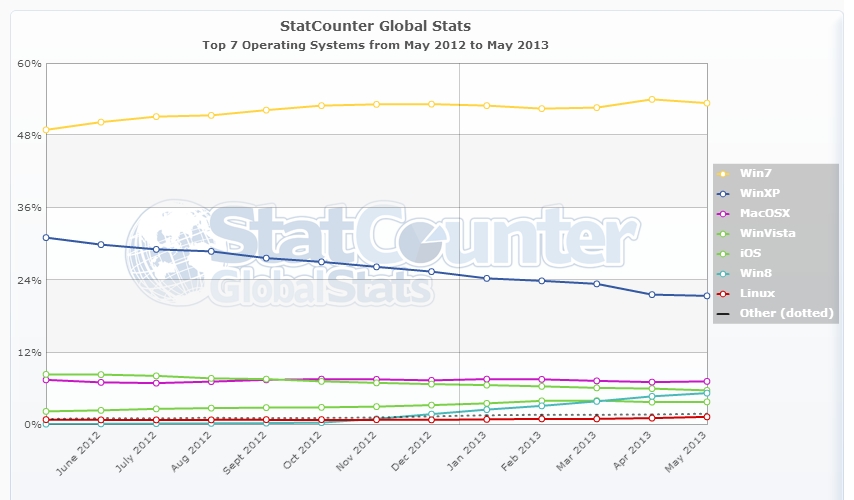
Should you update your old devices when the new OS is available? Read this article first!
Will updating the OS kills your old devices?
Each time a new operating system is released, consumers face a similar dilemma: Will it run as well on my old device? Should I update it or just buy a new laptop/cell phone with that OS pre-installed? To answer that question, you have to do some research on your old device and the new OS to see if they really belong together.
iOS devices:
Last Monday, Apple hosted its 2013 WWDC and announced its newly designed iOS 7. The beta version was released that day for Apple developers to download and test. Almost two weeks have gone by and those who didn’t get a chance to test the beta version want to know how iOS 7 works on existing Apple devices. The answer is unfortunately, not very good. Apple said that iOS 7 would support iPhone 4/4s/5, 5th gen iPod Touch and iPad 2/3/4 and Mini. However, not all of them can run it smoothly.
Many iPhone 4 users complain that the iOS 7 beta works very sluggishly on iPhone 4. Loading time for apps seems to be longer than before and the device noticeably heats up after some time. The gorgeous animations in iOS7 may be too much for the A4 chip in iPhone 4. Even the iPhone 5 cannot run the beta version perfectly. In a speed test of iOS 7.0 beta 1 vs. iOS 6.1.4 running on two iPhone 5s, iOS 7 beat iOS 6 in website loading speed, although it lost in almost all the other comparisons.
There are also many bugs in iOS7. Some of them are compatibility problems, for example, many third party apps cannot run on this beta OS, which is normal since they haven’t been tested on iOS7, some of them are system problems. In the next few months before the official release, bugs will be fixed with each beta update and I believe the system will run faster, however, the hardware in iPhone 4/4s may still be too old to run iOS 7 perfectly even after Apple optimizes the system. If you are an iPhone 4/4s user and you want to have a taste of iOS7, you may have to say goodbye to your old friend.
Android devices:
 Apple’s sworn enemy: Android, also suffers OS update problems. The Android OS fragmentation makes it difficult for the developers to provide consistent results on all platforms. For example, the latest Android Jelly Bean system suffers problems like unstable Wi-Fi connections, random rebooting or freezing, poor battery life and Bluetooth malfunctions.
Apple’s sworn enemy: Android, also suffers OS update problems. The Android OS fragmentation makes it difficult for the developers to provide consistent results on all platforms. For example, the latest Android Jelly Bean system suffers problems like unstable Wi-Fi connections, random rebooting or freezing, poor battery life and Bluetooth malfunctions.
Old devices also cannot run the latest OS perfectly, same as iOS. I used to have a HTC desire with Android 2.3 pre-installed. I skipped most of the updates and tried to update it to Android 4.0 last year. The phone was almost unusable after the update. It took 5 minutes to open the gallery, and the animation during screen switching was very sluggish. The hardware in my old device was below the minimum requirement for a usable running speed. The hardware seems to put more restrictions on Android users than it did on iOS users as the mobile fragmentation of Android is much higher than iOS.
PC updates:
Windows 8 may be one of the most controversial systems Microsoft ever released. 10 months since its initial release date, there are still criticisms saying that it is a completely failure.

(Win7 is still the most popular computer OS in the market and Win8 is slowly catching up according to Stat Counter.)
To some extent, Windows 8 is indeed not that user-friendly. If you are thinking of upgrading your PC to Windows 8, you probably won’t have a pleasant experience even if your computer meets the minimum running requirements. One of the most remarkable changes on Windows 8 is its touch control; actually, the design of the interface of Windows 8 is all about touch. To get the most out of Windows 8, your old computer better have a touchscreen.
However, having a touchscreen doesn’t mean that you are able to enjoy all the new features. Before updating to Windows 8, you have to check whether your computer model has the software patches provided by its manufacture to optimize its ability to run Windows 8. If its manufacture does not provide such patches for your model, then your touchscreen may still be unable to send certain instructions, like Windows 8 gestures.
In addition, if your computer is already 4 or 5 years old and just meets the minimum requirement of Windows 8, chances are that it can run the system, but it won’t run well due to the outdated CPU or RAM. The good news for desktop users is that desktops are easier to upgrade since you can always upgrade your hardware without throwing the whole machine away. For laptop users, either keep using their old OS, or purchase a new device.
Suggestions:
Dont update your OS blindly. Try to make sure your device is compatible to support the new OS and powerful enough to not only run it, but also to perform well. You dont want to run in a situation when new OS eats up all your system resources. If you want to try the beta version of an OS, don’t update it on the devices that you need to use on a daily basis, instead go to the computer store and try it there.
Contributors: Eugene Vnuk & Alex Yakubov
